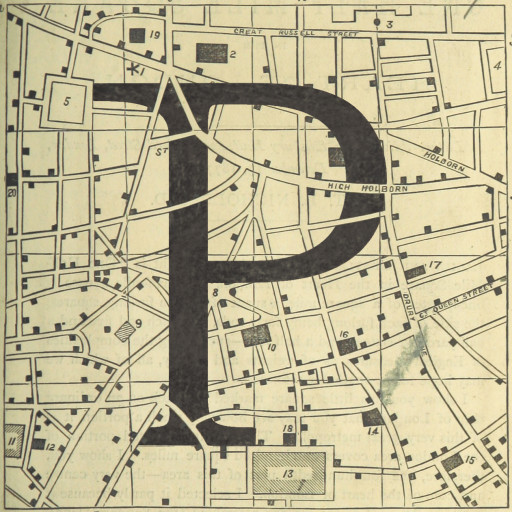 We thought it’d be useful to share a list of all the sources and tools we’ve drawn content from for Poetic Places. It’s not a listing of all the open content on the web by any stretch, but it might be useful to those working on creative projects.
We thought it’d be useful to share a list of all the sources and tools we’ve drawn content from for Poetic Places. It’s not a listing of all the open content on the web by any stretch, but it might be useful to those working on creative projects.
We’ve focussed on including visual media sources, as our literary research was more widespread and there are fewer searchable collections of poems and suchlike.
Tools:
Google Image Search — Paste in an image URL or upload an image to find other instances of a picture on the web. If you’re using Google Chrome you can also right-click on most images and select ‘Search Google for Image’. My tip is to see who has the highest resolution version of the image and go from there to find the source. Note that this isn’t foolproof, as Google doesn’t tend to catalogue databases and image libraries, but it can point you in the right direction.
WATCH – ‘Writers Artists and Their Copyright Holders is a database of copyright contacts for writers, artists, and prominent figures in other creative fields.’ We discovered this database tool quite late in the project, but it’s really useful for tracking down copyright holders and the estates of recently-deceased poets.
Visual Media: Free*
(*Sometimes)
British Library Flickr Commons – A million completely free images for whatever purpose you can think of; from illuminated letters to old maps. Easy to search, though you might want to be creative with your terms. Used a lot for Poetic Places.
Yale Center for British Art – Almost all images are free to use and downloadable in very high resolution. Amazing paintings including works by Turner, for example. Used extensively for Poetic Places.
Wellcome Images – Not as well known as it should be, the Wellcome also have free-to-use films. Images often medical in nature but there are locations and artworks, etc. too. Usable images clearly labelled.
Europeana – A search engine for a variety of collections rather than a collection itself, linking to items submitted to Europeana by collection holders. Includes things that are pay-to-use, but these can usually be filtered out.
National Portrait Gallery – Useful, but it’s not easy to tell what’s available under Creative Commons until you drill down through individual listings and it’s not something you can specify in your search.
GeoGraph – An amazing resource if you need pictures of places. Users upload images and attach a location. We found some great images of old Euston Station this way. A word of warning—there’s no guarantee that the user who’s uploaded the image actually owns it, so you’ll have to judge for yourself in each case.
British Council Film Collection – A 1940s film archive available to watch and download under Creative Commons. Watermarked footage and awkward to search, but lovely visuals.
Visual Media: Paid*
(*Usually. Varying costs.)
Museum of London – A great collection of images relating primarily to London and not expensive for non-profit endeavours.
Bishopsgate Institute – A great and perhaps little-known collection relating primarily to London and also not expensive for non-profit endeavours.
Museum of Fine Arts Boston – Lovely art but you’ll have to pay to use it. Not completely bank-breaking, but probably not great for small projects. We used precisely one image from them.
Literature:
We referred to quite a few printed anthologies and old digitised ones to track down relevant poems, but here are a few literature-mapping resources we drew on:
Poetry Atlas — A lovely free resource. Not comprehensive but a good site to start looking at poetry of place. Keep an eye out for typos, though!
Stanza — A poetry competition with a handy sideline in mapping Scottish poems. We’ve not included content about Scotland yet, but this is too useful not to mention.
Top image from the British Library Flickr collection: page 29 of ‘Humorous Poems … With a preface by A. Ainger, and … illustrations by C. E. Brock. L.P’
